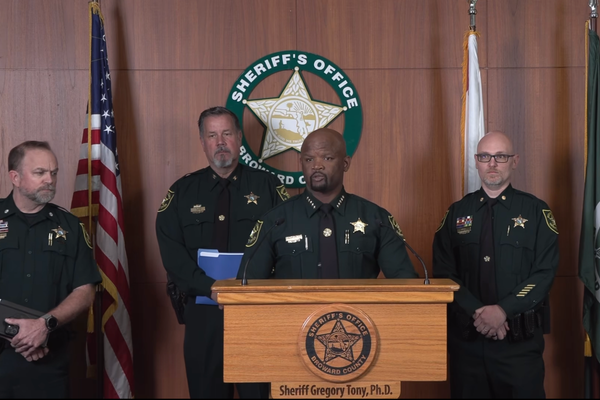Liz Truss was challenged to act immediately on the cost-of-living crisis, as Nicola Sturgeon congratulated the new Tory leader and next prime minister.
The First Minister said she will seek to build a “good working relationship” with her despite “deep” political differences. Their relationship became a talking point in the Tory leadership contest after Truss said she would ignore Sturgeon.
Truss will formally become prime minister on Tuesday when she meets the Queen at Balmoral, after defeating former chancellor Rishi Sunak with around 57% of the vote.
Sturgeon said on Twitter: “Our political differences are deep, but I will seek to build a good working relationship with her as I did with the last three PMs.
“She must now freeze energy bills for people and businesses, deliver more cash support and increase funding for public services.”
Truss, the current Foreign Secretary, is expected to announce cost-of-living support, which could include freezing energy bills, during her first week in the top job.
Scottish Conservative leader Douglas Ross was among the Tory MPs congratulating her, but urged the party to unite to tackle the country’s challenges following the leadership contest.
“Now that the leadership election is over, it is time for the whole of the Conservative Party to come together to tackle the big challenges our country faces.
“Throughout her political career, Liz Truss has shown herself to have a record of delivery, whether that was in removing US tariffs on whisky and cashmere or in managing the UK’s robust support for Ukraine both before and following the Russian invasion.”
Political opponents from Scottish Labour and the Liberal Democrats criticised the result, with both leaders Anas Sarwar and Alex Cole-Hamilton saying the appointment is set to be “more of the same” as Boris Johnson’s tenure. Scottish Greens co-leader Lorna Slater said the result is “terrible news” for Scotland and the environment.
As for the business community, Scottish Chambers of Commerce chief executive Dr Liz Cameron commented: “Scotland’s business community is united in its calls for immediate action to be taken to support the Scottish and UK economy; urgent measures are needed now to deal with the costs’ emergency.
“Scottish businesses have been telling us of eye-watering increases in their energy bills and that it is near impossible to find new fixed term contracts to buffer against further price hikes - this is simply not sustainable.”
Marc Crothall, chief executive of the Scottish Tourism Alliance, said: “Our tourism and hospitality sectors are facing a cost-of-doing-business-crisis, coping with unprecedented challenges of recovery from the pandemic, rising energy prices, increasing costs of goods and materials and double-digit inflation which continues to rise.
“The cost pressure on businesses to make substantial deposits to secure their supply from energy companies is already making trading impossible for many within our sector.
“Our sector is now at a crossroads in deciding how and when to trade, with permanent closure now a serious risk to the majority of businesses, so our asks of the new UK administration are clear: we need an urgent freeze on the energy price cap for households and businesses, VAT reduction on supplies relating to hospitality, accommodation and attractions, deferral of the Coronavirus Business Interruption Loan Scheme repayments, urgent support for businesses struggling to secure new energy contracts and an immediate review of immigration rules to address the labour workforce shortages within the sector.“
Kate Nicholls, chief executive of UKHospitality, commented: “The new government must act quickly and decisively to address the soaring energy bills that are facing consumers and businesses.
“With the right package of support - including a reduction in the headline rate of VAT for the sector to 12.5%, a business rates holiday, the deferral of all environmental levies, the reinstatement of a HMRC Time to Pay scheme and the reintroduction of a trade credit insurance scheme for energy - the sector will be well placed to aid growth through generating jobs and local investment.“
Martin Kennedy, president of the National Farmers Union in Scotland, urged Truss to address the immediate issues facing farming and food production.
“Supporting domestic production and its standards means a change of direction and industry engagement on trade policy - rather than agriculture being used as a pawn, we need an approach to trade policy that is fair and an agricultural policy that has production at its heart.
“We need a long-term commitment to invest in farming from the UK Government if this industry, and the tens of thousands of jobs reliant on it, are to thrive.”
Roan Lavery, co-founder and chief executive of Edinburgh-based fintech FreeAgent, said: “Since the end of the Recovery Loan Scheme provided to businesses throughout the pandemic, there hasn’t really been any further government help for small businesses.
“SMEs are the backbone of the economy - due to their nimble and innovative nature, they are also likely to be the businesses that will lead the UK economy back to prosperity - but in order to do this, they require the right support.
“I would therefore urge the new Prime Minister to consider introducing a new support scheme specifically for SMEs that can support businesses through the increasing pressures of cost-of-living crisis and the impending recession.”
An ‘emergency fiscal event’ is expected to be held shortly, containing some key tax announcements.
While Truss has specifically ruled out introducing any new taxes, it is thought this may include a reverse in the recent rise in national insurance contributions.
Sian Steele, Head of Tax at Evelyn Partners, explained: “Liz Truss’s campaign has been marked by big tax pledges, which she is expected to announce formally later this month - in the last hustings, she also commented that the tax system is too complicated, and that the number of loopholes needs to be reduced.
“A headline announcement, which will be welcomed by many, is her plan to reverse the rise in national insurance contributions.“
This 1.25% rise was only implemented in April by then Chancellor Rishi Sunak, with an increase in the threshold for payment from £9,880 to £12,570 from July. It is not clear if any further changes will be made to the current NI threshold, or if the recent 1.25% increase to the dividend tax rate will also be reversed. “
Truss is also considering a possible increase in the personal allowance for income tax. The personal allowance was set at £12,570 for 2021/22, and frozen at that level by the Spring Budget 2021 for the four-year period from 2022/23 to 2025/26, with no inflationary increases.
“Liz Truss has also stated that she will cancel the planned increase in corporation tax, which would have increased the rate paid by the most profitable companies from 19% to 25% from April 2023,“ added Steele.
The Office for Budget Responsibility has confirmed that if asked by the new Chancellor to produce a forecast on 14 or 21 September, it would be able to do so, before Parliament enters recess on 22 September.
This would allow a full Budget to be given, but Truss could choose to wait and save further announcements for an Autumn Budget.
Don't miss the latest headlines with our twice-daily newsletter - sign up here for free.







